May 24, 2025 | 11:55 GMT +7
May 24, 2025 | 11:55 GMT +7
Hotline: 0913.378.918
May 24, 2025 | 11:55 GMT +7
Hotline: 0913.378.918
In the habits and tastes of consumers in many markets, when processing floured and fried shrimp, manufacturers often add eggs to create an adhesive layer. Eggs help the flour layer stick more firmly to the shrimp, avoiding the situation where the flour falls off when frying. Eggs also help the breadcrumbs or tempura flour have a crispier texture. The light fatty taste of eggs helps the flour layer to be less bland, creating a delicious feeling.
In addition, egg yolks help the flour have a more beautiful yellow color while keeping the flour layer moist, preventing the product from becoming dry and hard.
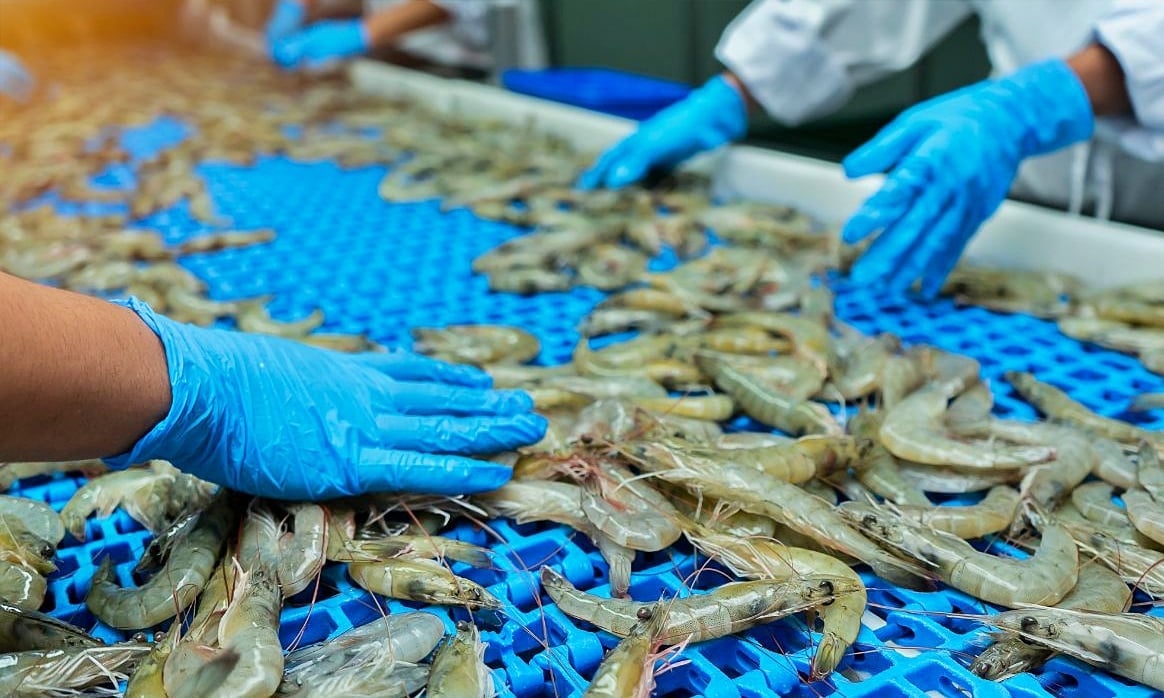
Shrimp is Vietnam's main export item to the EU. Photo: VASEP.
Many food manufacturers in Vietnam and other countries use eggs in their shrimp-floured and fried recipes. However, according to Article 21 of Regulation (EU) No.1169/2011, eggs are among the allergenic products and must be declared on the product label.
The EU strictly regulates substances or products that cause allergies or intolerance. Some common substances in food include cereals containing gluten, crustaceans, eggs, fish, peanuts, soy, milk, nuts, celery, mustard, sesame seeds, lupins, shellfish, etc.
All products containing the above ingredients must be clearly stated on the product label list. If not, the European Union's Rapid Alert System for Food and Feed Safety (RASFF) will warn the exporting country, along with necessary measures.
Failure to declare or incorrect declaration of allergens may result in product recalls or import bans into the EU. In the past, there have been numerous cases of frozen floured and fried shrimp failing to declare egg in their batter, leading to product recalls in Europe.
Not only do businesses suffer economic losses, but the entire industry may also be affected if violations recur. Depending on the severity, the EU will take measures such as increasing the frequency of inspections at border gates, requiring certificates from competent authorities to accompany shipments, or, more seriously, banning exports.
Eggs are a common allergen, often appearing in many frozen export products such as fish cakes, squid cakes, sausages, etc. In addition, eggs are also a product of animal origin; when composite products are exported to the European market, they must comply with Regulation (EU) 2022/2292, effective from December 15, 2022.

Sylvie Coulon, a senior expert of DG SANTE, said that according to the new EU regulations, shrimp floured and fried is classified as a composite product. Photo: Bao Thang.
Composite products include both plant-based ingredients and processed animal-based ingredients, in which the plant-based ingredients have changed the basic properties of the animal ingredients.
Some examples of composite products are cookies made from eggs, milk, meat, and fat and instant noodles with processed meat... Shrimp floured and fried is also a composite product because it contains flour (of plant origin) and has changed the properties of shrimp (of animal origin).
Currently, the EU only allows approved third-country egg products to be exported to the EU (such as the United States, Japan, Brazil, etc... Vietnam wants to export floured and fried shrimp products with eggs to the EU; it must use eggs originating from the above countries.
EU food safety and animal and plant quarantine regulations are constantly changing. Therefore, the Vietnam SPS Office recommends that businesses carefully study EU regulations, especially those related to food safety, labeling, Regulation (EU) 1169/2011 on providing consumer food information, and the very new Regulation (EU) 2022/2292 on composite products.
Before packaging for export, businesses must label fully and accurately, ensuring that all allergens in the product are listed and helping consumers identify and avoid them.
Also, quality must be strictly controlled by establishing a quality control process to ensure cross-contamination or omission when declaring allergens.
“Strict compliance with regulations on allergen declaration, as well as origin requirements for synthetic products, not only helps businesses avoid legal risks but also enhances their reputation and ensures safety for consumers,” emphasized Dr. Ngo Xuan Nam, Deputy Director of SPS Vietnam.
According to Nam, Europe regularly amends and supplements regulations and requirements for importing agricultural, aquatic, and food products. Recently, this market announced that it will apply inorganic arsenic residue levels in fish and some aquatic products for the first time. Therefore, exporting enterprises must proactively monitor and update information about the EU market, having appropriate adaptation plans and production adjustments.
Along with pangasius, shrimp is Vietnam's main seafood export product. In 2024, shrimp exports brought in nearly USD 4 billion, an increase of about 14% compared to 2023. This export value is forecast to continue to grow in 2025.
Translated by Huong Giang
/2025/05/22/5250-1-184853_288.jpg)
(VAN) According to a representative from the Central Retail Vietnam, Vietnamese products such as seafood, sweet potatoes, dragon fruit, coffee, and spices hold great potential in the Thai market.
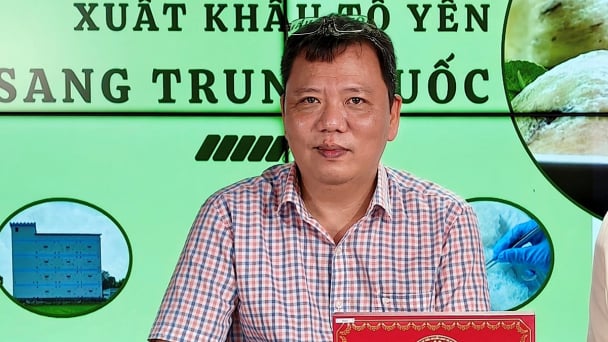
(VAN) A multi-channel, multi-directional strategy only works when the agricultural value chain meets global transparency and SPS standards.
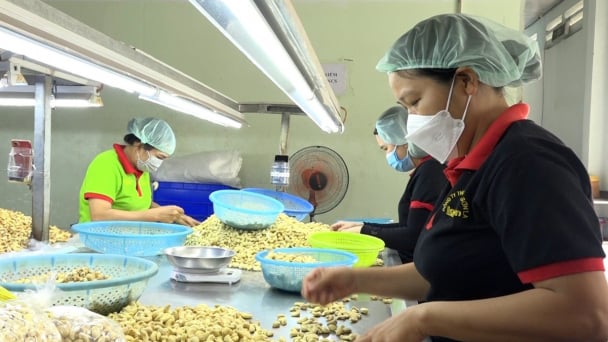
(VAN) Market expansion is a matter of survival for Vietnamese businesses amid fierce competition and global supply chain fluctuations.
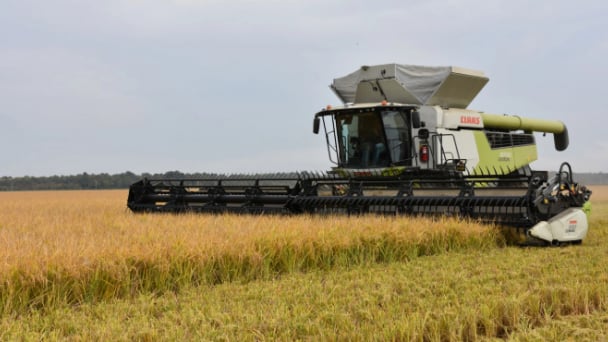
(VAN) Global market prospects for U.S. long-grain rice for the upcoming marketing year.
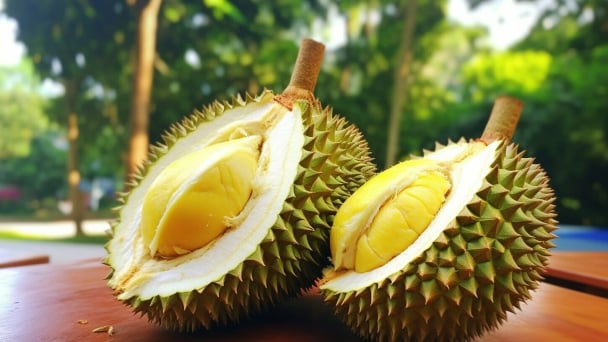
(VAN) China’s General Administration of Customs started permitting fresh durian shipments from Cambodia after a phytosanitary protocol was signed with the Cambodian Ministry of Agriculture in late April.
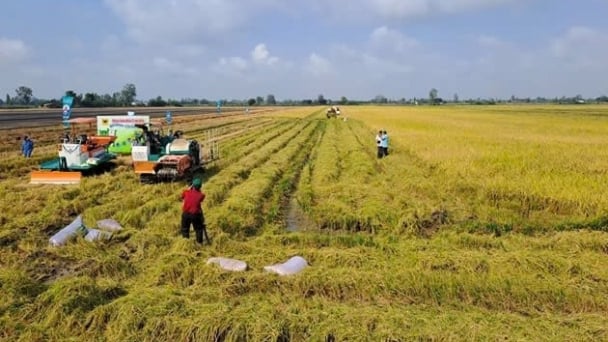
(VAN) To operate carbon market, one of the key issues is determining which types of 'commodities' meet the standards to be traded on the market.
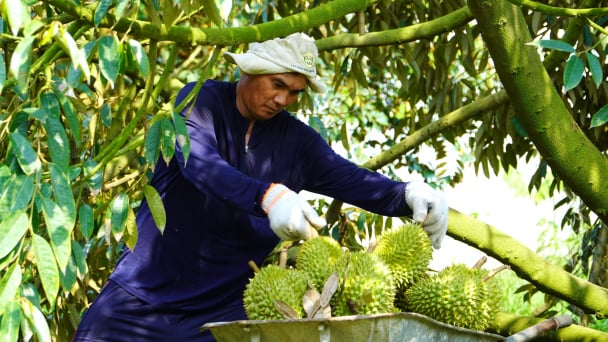
(VAN) Durian-producing localities need to coordinate more effectively with central authorities to improve the traceability, monitoring, and response systems in case of violations.